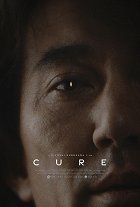Regie:
Kiyoshi KurosawaDrehbuch:
Kiyoshi KurosawaKamera:
喜久村徳章Musik:
ゲイリー芦屋Besetzung:
Kōji Yakusho, Masato Hagiwara, Yukijirō Hotaru, Ren Ōsugi, Tarō Suwa, Makoto Togashi, 田中哲司, 洞口依子, 大鷹明良, Masahiro TodaInhalte(1)
Ermittler Takabe steht vor einem Rätsel. Ein toter Körper in einem See von Blut, zwei Schnitte in X-Form vom Hals zur Brust, durchtrennte Hauptschlagadern. Alles ist genau so, wie bei den anderen Leichen, die er sich neuerdings ansehen muss. Klassischer Fall von Serienmord? Wenn es so einfach wäre! Die Täter werden jedesmal gefasst, so wie der Grundschullehrer Hanaoka, der seine Frau ermordet und sich dann aus dem Fenster stürzt. Oder Polizist Oida, der aus heiterem Himmel seinen Kollegen erschießt und ihn dann filetiert. Aber keiner von ihnen hat ein Motiv oder weiß, was ihn zur Tat getrieben hat. Auch einen Zeugen gibt es, aber der leidet anscheinend unter einer extremen Form von Amnesie. Ausgerechnet dieser Mann ohne Erinnerung scheint der Schlüssel zur Lösung dieses Rätsels zu sein. (Verleiher-Text)
(mehr)Kritiken (2)
Kiyoshi Kurosawa caught my attention with his film "Pulse", which was shot in a similarly depressing atmosphere. However, "Cure" has a better, more interesting story and it truly excels in its progression, which gets darker and darker, burdening the viewer more and more, until it reaches a finale that truly shakes them. If Japanese films were given more attention in Europe, perhaps we would finally understand that there is no reason to fear them, but rather we would realize why they are to be admired.
()
A perfect Japanese mysterious thriller with a great atmosphere that builds up slowly, and an interesting story. The premise reminds me a little of one of the very good episodes of The X-Files (Pusher, from the third season). The ending, as in most Asian thrillers, left me flabbergasted – what is that supposed to mean? The Asians really know how to do ambiguous tension. And even though I prefer to know, or at least to guess, where I’m standing with a film, this approach also has something going on for it. Either way, this film is worth recommending, if only for its oppressive atmosphere.
()
Galerie (24)


Werbung